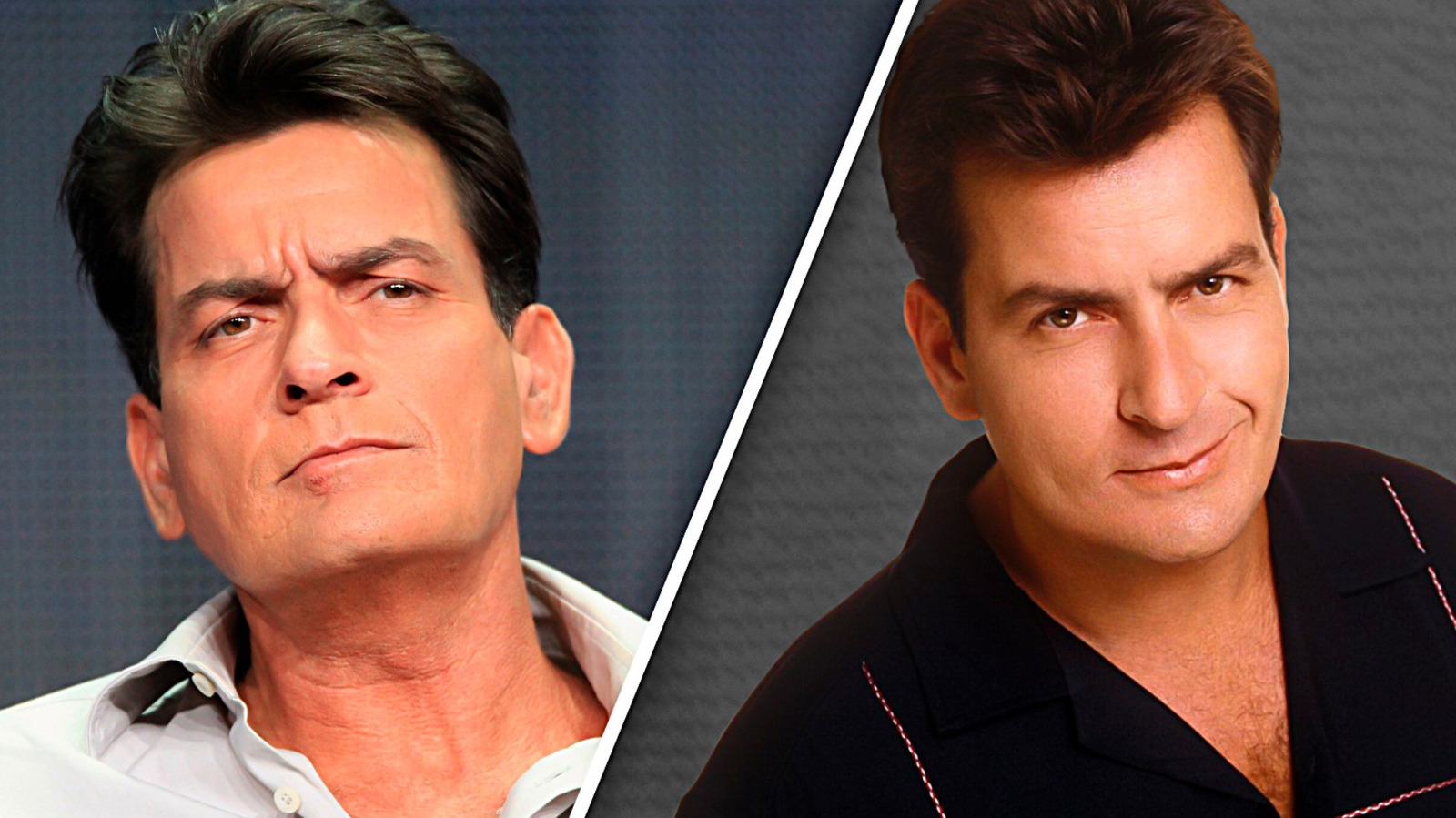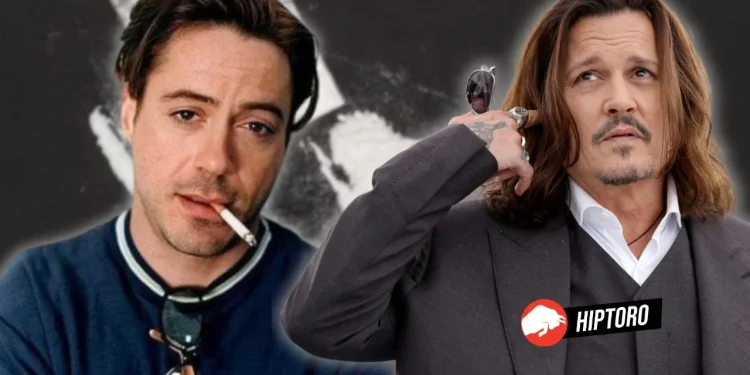Today, we’re delving into a topic that combines the allure of celebrity with the sobering realities of addiction. The tales of celebrities who have battled drug addiction are both cautionary and, often, redemptive stories that shed light on the pressures of fame and the human struggle with dependency. This exploration isn’t just about the sensational headlines but also the broader implications of addiction in the high-stakes world of fame.
Addiction knows no boundaries and can affect anyone, regardless of their socioeconomic status or career achievements. Celebrities, with their public lives constantly under scrutiny, often succumb to the pressures and temptations that accompany their fame. Their stories can serve to humanize the issue of addiction, bringing much-needed attention and resources to the fight against this pervasive condition.
Here are the Top 10 Famous Celebrities Who Were Drug Addicts
1. Robert Downey Jr.: A Story of Resilience and Redemption
From Downfall to Recovery: Robert Downey Jr.’s journey from a promising actor to a struggling drug addict and back to a Hollywood A-lister is a powerful story of resilience and redemption. Downey’s early career was marked by incredible talent and success, but it was also shadowed by severe substance abuse, including cocaine, heroin, and alcohol. His frequent run-ins with the law and stints in rehabilitation facilities were widely publicized, putting his career on a seemingly permanent hiatus.

During the late 1990s and early 2000s, Downey’s struggles reached their peak, leading to multiple arrests and prison sentences. It was during these tumultuous times that he reached rock bottom, which became the catalyst for his commitment to sobriety. His turnaround began with a court-ordered rehab program, which he completed, marking the beginning of a profound personal and professional transformation.
A Second Chance in Hollywood: After his recovery, Downey made a phenomenal comeback in Hollywood, reinventing himself as an actor and regaining his reputation within the industry. His role as Tony Stark in “Iron Man” catapulted him back into the spotlight and initiated one of the most spectacular career revivals in Hollywood history. This role not only revived his career but also made him a role model for overcoming adversity. Downey’s portrayal of Stark, a flawed but ultimately heroic character, seemed to parallel his real-life journey, resonating deeply with audiences.
Advocacy and Impact: Since his recovery, Robert Downey Jr. has been an outspoken advocate for drug rehabilitation rather than incarceration for non-violent drug offenders. He has used his experience to speak publicly about the challenges of addiction and the potential for recovery, providing hope and supporting others who struggle with similar issues. His work extends to supporting various charity organizations and advocating for legal reform focused on substance abuse and rehabilitation.
Downey’s story is not just about personal triumph; it’s about the impact one individual can have on public perceptions of addiction and recovery. His advocacy has contributed to greater awareness and evolving attitudes toward addiction and rehabilitation, demonstrating that recovery is possible and that second chances can lead to meaningful and successful lives.
2. Whitney Houston: A Voice Silenced Too Soon
Talent and Turmoil: Whitney Houston was a musical powerhouse whose voice captivated the world, but her life was also marked by profound struggles with drug addiction. Houston’s career began in the church choir, quickly ascending to international stardom with hits that became timeless classics. However, as her fame grew, so did the pressures and expectations, which she often coped with through substance abuse.
Her marriage to Bobby Brown and the invasive media attention heightened her challenges, leading to a very public battle with addiction. Despite multiple attempts at rehabilitation, Houston struggled to maintain her sobriety, with her voice and public appearances visibly affected by her ongoing battles with drugs.

The Tragic End and Its Aftermath: Houston’s death in 2012 was a devastating loss to the music world and a painful reminder of the destructive power of addiction. The circumstances of her death—accidental drowning with heart issues and cocaine use as contributing factors—sparked widespread media attention and public mourning. Her passing led to an outpouring of grief and a reevaluation of how the media and the public treat celebrities dealing with addiction.
Legacy and Learning: Whitney Houston’s legacy extends beyond her music. Her life and struggles have prompted discussions about the pressures of fame, the importance of mental health support, and the harsh realities of addiction. Documentaries and biographies have explored her life, emphasizing not just her musical achievements but also the need for better support systems for people in the public eye.
Houston’s story serves as a cautionary tale about the cost of fame and the importance of addressing addiction with empathy and support rather than judgment. Her death has inspired increased advocacy for mental health and substance abuse support, particularly in the entertainment industry, highlighting the need for comprehensive care and understanding.
3. Johnny Depp: Navigating Fame and Personal Struggle
A Turbulent Journey Through Stardom: Johnny Depp’s rise to fame was characterized by his unique talent and the complex, often dark characters he portrayed. However, behind the scenes, Depp faced his darkness, grappling with drug and alcohol addiction which he has openly discussed in various interviews and court testimonies. His addiction issues started in the 1990s and impacted his personal life and his career, intertwining with his high-profile relationships and publicized legal battles.

Public Battles and Media Exposure: Depp’s addiction became a central theme in his high-profile divorce and subsequent legal disputes with actress Amber Heard, where allegations of drug and alcohol abuse were prominent. These court cases were extensively covered by the media, casting a spotlight not only on his professional life but also on his struggles. This public scrutiny has shaped Depp’s public persona, often overshadowing his career achievements and contributions to film.
Impact on Career and Personal Insights: Despite his battles, Depp has continued to work in the film industry, though his roles have become more selective and his presence in Hollywood has been notably quieter. His story highlights the challenges of managing addiction in the public eye, where every step of the recovery process is scrutinized. This situation sheds light on the broader issue of how media portrayal can influence public perception of addiction, often sensationalizing personal tragedies instead of providing a nuanced view of the struggle against addiction.
Reflections on Recovery: Depp’s ongoing journey underscores the complexity of addiction recovery, especially in the entertainment industry, where the pressures are immense and privacy is scant. His case serves as a poignant example of the need for a supportive environment that respects the personal journeys of those in recovery, rather than exploiting their struggles for entertainment value.
4. Demi Lovato: Advocacy Through Vulnerability
Early Fame and Mental Health Challenges: Demi Lovato, who transitioned from a Disney star to a global pop sensation, has been remarkably open about their struggles with addiction, mental health, and recovery. Lovato’s issues with cocaine and alcohol became public as they rose in fame, leading to multiple interventions, treatments, and a few high-profile relapses. Their openness about these challenges has been central to their public image and their advocacy work.

Using a Platform for Advocacy: Lovato has utilized their platform to speak candidly about their experiences with addiction and mental health, becoming an advocate for mental health awareness and a source of inspiration for many young fans facing similar struggles. By sharing their story, Lovato has helped destigmatize talking about mental health and addiction, particularly among their young audience, fostering a more open conversation about these crucial issues.
Impact on Career and Ongoing Recovery: Their career has been punctuated by their advocacy, influencing their music and public engagements. Lovato’s willingness to share their recovery journey, including the setbacks, emphasizes the reality that recovery is a nonlinear process, marked by victories and setbacks. This honest approach has not only shaped their career but also contributed to changing how addiction is discussed in popular culture.
Contribution to Public Understanding: Lovato’s actions have significant implications for public understanding of addiction and recovery. Their openness brings attention to the importance of accessible mental health services and the need for comprehensive support systems, both within and outside the entertainment industry.
5. Macaulay Culkin: Navigating Early Fame and Personal Recovery
Early Stardom and Its Pitfalls: Macaulay Culkin, known worldwide for his role as Kevin McCallister in the iconic “Home Alone” series, experienced the highs and lows of early fame. Thrust into the spotlight as a child, Culkin quickly became one of the most recognizable faces of the 1990s. However, with fame came tremendous pressure, and by his teenage years, Culkin found himself grappling with substance abuse issues. His 2004 arrest for possession of marijuana and controlled substances marked a public low point.

Steps Toward Recovery: Following his legal troubles, Culkin took a step back from the public eye, focusing on his health and well-being. This period of relative privacy allowed him to work on his recovery away from the relentless scrutiny of the media. Over the years, Culkin has slowly reintegrated into the entertainment world, choosing roles that resonate with his personal and artistic growth, including appearances in independent films and television shows.
Maintaining a Low Profile: Culkin’s approach to recovery has been notably private, a decision that has helped him rebuild his life at his own pace. By stepping away from the constant public attention, he has managed to avoid the pitfalls that often accompany celebrity recoveries. This strategy has not only aided his recovery but has also allowed him to reshape his public image from a child star to a mature actor with control over his career and life.
Impacting Public Perception: Culkin’s journey underscores the importance of privacy and personal space in overcoming addiction, especially for child stars whose early lives were lived in the limelight. His story is a reminder of the human capacity for change and the personal determination required to navigate the journey of recovery.
6. Elton John: From Pop Icon to Advocate for Recovery
The Height of Fame and the Depths of Addiction: Sir Elton John, one of the most celebrated musicians of his generation, battled with severe drug and alcohol addiction at the height of his career. His flamboyant stage presence and hit songs contrasted sharply with his struggles, which began to surface publicly in the 1970s and 1980s. Cocaine and alcohol were his substances of choice, and they nearly cost him his career and his life.

Embracing Sobriety and Advocacy: Elton John’s turnaround came after he entered rehab in the early 1990s, a move that marked the beginning of his long-term recovery. Since becoming sober, John has been an outspoken advocate for drug rehabilitation programs and HIV/AIDS awareness, leveraging his celebrity status to promote health and recovery. He founded the Elton John AIDS Foundation, which has raised hundreds of millions of dollars for AIDS research and treatment.
Legacy Beyond Music: Elton John’s advocacy work has had a profound impact on public health and policy, particularly concerning AIDS and substance abuse. His willingness to discuss his addiction and recovery openly has helped reduce stigma and promote a more empathetic understanding of these issues. His ongoing commitment to advocacy exemplifies how personal transformation can lead to significant social contributions.
7. Drew Barrymore: A Tale of Resilience and Renewal
Early Exposure to Hollywood and Its Challenges: Drew Barrymore, a member of the legendary Barrymore family, began her acting career as a child star in “E.T. the Extra-Terrestrial.” Her early fame, however, led to equally early encounters with drug and alcohol abuse. By age 13, Barrymore had already entered rehab, struggling with an addiction that was exacerbated by her family background and early exposure to Hollywood’s party scene.

Reclaiming Her Life and Career: Barrymore’s public recovery included a short-lived institutionalization, legal emancipation from her parents, and a series of comebacks that redefined her career. She emerged as not only a talented actress but also a successful producer and director, founding Flower Films, which produced hits like “Charlie’s Angels.”
Inspiring Others Through Openness: Barrymore has been candid about her struggles in her autobiography, “Little Girl Lost,” and numerous interviews, using her platform to inspire others facing similar challenges. Her story is particularly impactful because it demonstrates the possibility of recovery and success, even after a tumultuous start.
8. Charlie Sheen: Navigating Turmoil in the Public Eye
A Career Overshadowed by Personal Strife: Charlie Sheen, known for his roles in “Platoon,” “Wall Street,” and the hit TV show “Two and a Half Men,” has been as famous for his acting career as he has been for his turbulent personal life, includes highly-publicized struggles with drug and alcohol addiction. Sheen’s public persona has often been characterized by his “bad boy” image, which was amplified by his substance abuse and erratic behavior that led to legal issues and stints in rehab.

The Downfall and Public Spectacle: Sheen’s addiction issues came to a head during his time on “Two and a Half Men,” where his off-screen behavior increasingly impacted his professional life. His very public fallout with the show’s creator in 2011 was filled with media frenzies that focused on his substance use, outlandish public statements, and subsequent dismissal from the show. This period was marked by a series of bizarre public appearances and interviews where he coined phrases like “winning” and talked openly about his drug use, further cementing his troubled image in the public consciousness.
Efforts Towards Recovery: Following his departure from television, Sheen has made attempts to recover from his addictions, though his journey has been fraught with challenges and setbacks. In more recent years, he has taken steps to stabilize his life, including disclosing his HIV-positive status, which he attributed to his years of substance abuse and risky behavior. This disclosure has been part of his broader effort to regain control over his health and public image.
Impact on Public Perception and Advocacy: Sheen’s very public struggles and recovery attempts have opened up conversations about the intersection of celebrity, addiction, and mental health, illustrating the intense pressure and scrutiny public figures face. His journey underscores the need for more compassionate approaches to addiction and mental health issues, particularly for those in the public eye.
9. Heath Ledger: A Talented Life Cut Short
Brilliant Career and Hidden Battles: Heath Ledger was a critically acclaimed actor known for his intense and diverse roles, including his Oscar-winning portrayal of the Joker in “The Dark Knight.” Despite his professional success, Ledger struggled with the pressures of fame and the demands of his craft, which contributed to his battles with insomnia and anxiety. These issues led him to use prescription medications as a form of self-medication, a decision that would have tragic consequences.

Tragic End and Its Aftermath: Ledger’s death in 2008 from an accidental overdose of prescription drugs shocked the world and highlighted the dangers of prescription medication misuse. The combination of painkillers, sleeping pills, and anti-anxiety medication found in his system pointed to the severe pressures and mental health challenges he faced, sparking discussions about the support systems available to individuals dealing with similar issues in the entertainment industry and beyond.
Legacy of Awareness: Ledger’s death has had a lasting impact on the film industry and its fans. It has raised awareness about the importance of mental health care and the potential dangers of prescription drugs, especially in how they are prescribed and managed. His legacy continues to influence public discussions on these topics, emphasizing the need for better mental health support for everyone, particularly those whose careers place them under great public and personal pressure.
10. Amy Winehouse: The Price of Fame
Immense Talent and Turbulent Life: Amy Winehouse was a Grammy-winning artist known for her distinctive voice and eclectic mix of musical genres, including jazz, soul, and R&B. Despite her musical success, Winehouse faced numerous personal challenges, including a very public struggle with drug and alcohol addiction. Her tumultuous personal life, which was often documented by the paparazzi, overshadowed her career, culminating in her premature death at the age of 27.

Impact of Addiction on Career and Health: Winehouse’s addiction significantly impacted her health and professional output, leading to canceled tours and performances, and frequent hospitalizations. Her struggles with substances were compounded by eating disorders and mental health issues, which made her attempts at recovery even more challenging. Her death in 2011 from alcohol poisoning was a tragic end to a bright but troubled life.
Legacy and Cultural Impact: Amy Winehouse’s music continues to influence artists around the world, and her life story has sparked important conversations about the pressures of fame and the support systems available to celebrities struggling with addiction. Documentaries and biopics about her life have further explored these themes, advocating for a more understanding and supportive approach to dealing with addiction in the public eye.
Conclusion: Lessons Learned from Celebrity Struggles with Addiction
The narratives of celebrities like Charlie Sheen, Heath Ledger, Amy Winehouse, and others offer more than just glimpses into personal battles; they serve as profound lessons on the complexities of addiction and the impact of fame on mental health. Each story is a stark reminder of the pressures that come with public life and the devastating consequences that substance abuse can have, not only on the individuals involved but also on their families, friends, and fans.
Understanding and Empathy: These stories emphasize the need for a deeper understanding and empathy towards those who struggle with addiction. Addiction is a multifaceted disease that can affect anyone, regardless of their status or wealth. The cases of these public figures help to destigmatize discussions about mental health and substance use disorders, encouraging a more compassionate and informed approach to such issues.
The Role of Media and Public Perception: The media plays a significant role in shaping how we view celebrities and their struggles. There’s a critical need for the media to handle such sensitive topics with more care, avoiding sensationalism that can exacerbate the challenges these individuals face. A more responsible portrayal can contribute to a healthier public discourse about addiction and recovery, which can, in turn, influence policy and societal attitudes.
Advocacy and Policy Change: Celebrity stories have the power to influence public opinion and policy on health and addiction. Through their public and painful experiences, there’s potential for meaningful discussions and changes in how societies address mental health and addiction. Advocacy by celebrities who have recovered can be particularly powerful, promoting changes in healthcare policies and improving the support systems available to those suffering from similar issues.
Promoting Support Systems and Recovery: Lastly, these narratives highlight the importance of robust support systems for recovery, including access to mental health services, community support, and medical care. They remind us that recovery is possible with the right resources and that these should be accessible not just to celebrities but to everyone in need.
In essence, the struggles of these celebrities with addiction should not just be seen as tabloid fodder but as urgent calls to action to address the broader issues of mental health and substance abuse. By learning from their stories, we can strive to create a more supportive and understanding society that better manages the challenges of addiction and mental health.









